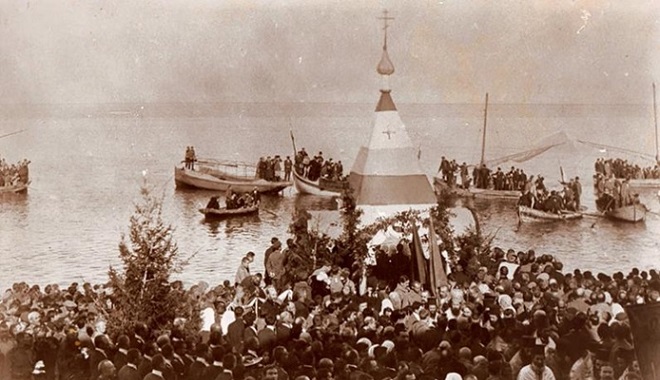My world’s different
10 January 2022‘My world’s different for me than in the eyes of the world’ (Greek song)
What meaning does a feast of the faith have these days? Most people see anything to do with the Church from a cultural perspective. Remnants left over from the past, useful, not always necessary, but not much of a bother either, particularly when they’re accompanied by days off work, holidays, rest and a change of pace. We who are within the Church are content with good wishes, church attendance, and all this entails: holy water, antidoro and so on. It’s true that many people take communion more frequently now than in the past. But it’s difficult to transfer into practice what it is that marks the feast for us in our life, our being, our world, given than our daily life draws us in with its own priorities, experiences and demands.

And while, for the older generation there’s still a connection rooted in tradition, young people are becoming increasingly remote. The feast’s a replica of previous ones and that’s some comfort to us. But the language, the length of the services, and the absence of any parish activity after the liturgy makes the feast a family affair in which the Church takes part rather than the other way round: a Church event in which the family takes part. If a family ceases to hold on to its ecclesiastical conscience then the latter can’t permeate people’s life.
Christmas is accompanied by a whole host of customs in which almost everyone participates in some way or another, with the result that the feast retains its importance, even though, for many people, Christ is absent. The feast of Theophany, however, is mostly confined to casting the cross, blessing the waters, drinking holy water and keeping it at home. It’s not marked by the renewal of existence which accompanies God’s new world, the one in which we’re invited to live. Because this is what holy water shows us: that when any material thing encounters the Holy Spirit, it’s made new. It doesn’t lose its composition, but acquires new content. Water doesn’t merely cleanse the body, but, through baptism, changes the orientation of the soul. It sets aside the old self, the willful one which deifies itself, and it makes us God’s children again, grateful for his love, armed with the faith and hopeful that our every work will be a joy if we share it with our neighbor.
The scrutiny of others makes our world other than it is. It’s not just that the outside world ‘is under the control of the evil one’. It’s also that those of us who want to take steps to overcome the self-containment of our cultural outlook have to make an effort in the direction of our existential rebirth. The Church contributes to this, with its iconography, hymnography and liturgical tradition, but it also wants us to emerge from our passivity, and to study, live and share the way.
We need ‘word, work, and meaning’, not to manifest God to the world, because that’s not dependent on us and is being accomplished all the time in any case, but to make this manifestation our own. Responsibility doesn’t rest solely with the pastors of the Church but with all of us. Hope, of course, springs eternal, because renewal is in the Holy Spirit. But we ourselves should also do what we can.






